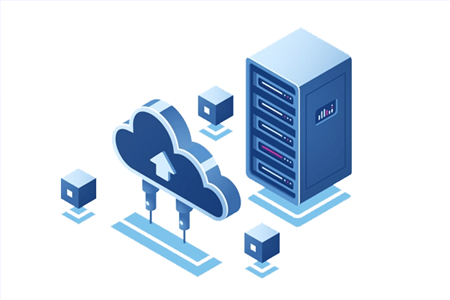As a manager of a cloud computing and data center, how will you judge whether the customer has a mixed cloud or cloud settings? We will discuss it through a common scene. Traditionally, companies using private clouds for computing and data storage need to be more data -centered when looking for the best way. They may be looking for an MSP that focuses on private clouds and hyper -fusion infrastructure as services.
For example, as you expect, companies that invest a large amount of investment in VMware will be more open for data services mixed clouds and VMware.
What is the difference between hybrid cloud and multi -cloud?
Let's review the concepts of mixed clouds and clouds, what you can do to improve your decision.
The mixed cloud refers to the company that integrates the most critical private clouds they have with the public cloud phase that is optimized for its distributed workload.
The mixed cloud combines the application, storage, and even network services of multiple cloud suppliers.
There are several important factors that can promote the company to choose a mixed cloud architecture:
Mixed clouds can minimize delays between applications.
Mixed clouds can also protect private clouds from being attacked by sensitive information from public cloud.
Mixed clouds can also meet the supervision requirements of GDPR and other IT regulations, which far exceed the technical capabilities of single cloud suppliers.
Hybrid cloud helps to save funds by using scale economy. If a company integrates its data center, it can save electricity and cooling costs.
In addition, since many companies use hybrid clouds to move applications between their internal and external environments, they will continue to obtain permission.
Does it meet your current and future needs? If the supplier in your mind is proficient in your business and meets the requirements, it will help you. This standard will help you concentrate on finding and selecting suppliers.
Is this supplier the top players in the technical field? For example, to ensure the correlation of the product, powerful suppliers will have more than one successful product.
Whether the supplier provides a low -contact method to install your application and support them by changing (including code, configuration and upgrade) to support them? The lower cost can generate a significant return on investment in any conversion.

What is a cloudy supplier?
Cloudy suppliers are companies that can provide the best technology and services. Cloudy suppliers not only focus on providing a single cloud platform to meet your needs, but also dedicated to support and integrate your application on multiple cloud platforms.
Cloud suppliers also support hybrid cloud functions, so they can be your choice of managing the entire IT stack.
Different factors that should be considered when choosing a cloudy supplier
Both mixed clouds and clouds can be used for you. All this depends on your current and future needs.
Deployment options. Some cloudy suppliers can provide private cloud and public cloud at the same time. This is a way to manage infrastructure and does not need to handle each cloud platform.
Integration and migration. Some cloudy suppliers are only integrated with their own private clouds. Other cloudy suppliers provide integrated solutions with the multi -cloud platform.
Application management. Cloudy suppliers may have the best integrated application management solution, but this does not mean that they provide the best use of application management solutions.
Customer Support. Enterprises need to cooperate with multiple suppliers to manage their IT stacks. Extensible, easy -to -operate, customer support, and maintenance are important factors that need to be considered.
Before selecting any cloudy suppliers, make sure you have done it completely. Your decision should be based on the needs at this time, not simply like or dislike.
The benefits of cloudy suppliers
It is great to choose a cloud provider to choose a public cloud or internal scheme in the enterprise. For example, because cloudy suppliers can support a series of cloud platforms, they do not need customers to run their internal data centers or even manage their hosted services. Customers can focus on their core business and be supported by one of the best suppliers in the field.
Cloud suppliers allow customers to flexibly manage the entire IT stack and deploy applications in any cloud or environment they choose.
Cloudy suppliers provide extremely high convenience and comfort. Cloudy suppliers can provide you with the need for you -whether it is extended existing applications or creating new applications.
Automatic fault transfer. Cloud supply providers will automatically provide new computing resources and maintenance configurations to meet your needs for fault transfer and normal operation time.
Most cloudy providers can provide unlimited, dynamic resources. This ability enables them to dynamically expand resources to cooperate with the use of customers. This is especially important for companies that need to process data that need to process increasingly.
In general, the advantages of cloudy providers far exceed their shortcomings. An important trend of an enterprise IT is to develop towards a more flexible cloud -fashioned architecture. This architecture allows you to start from small and expand with the development of the business.

 EN
EN
 CN
CN








